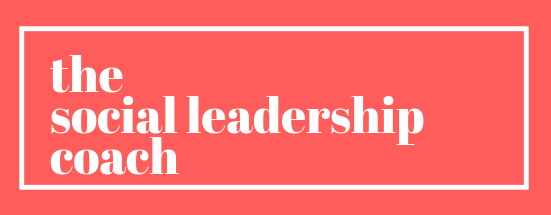This post is also available in:
 Spanish
Spanish
As you near year-end, it’s time to take stock. How do you measure success so you can plan for the upcoming year? Some social leaders keep complicated spreadsheets, while others go by gut feeling. I believe in keeping it simple by asking 4 fundamental questions. You can do this exercise for yourself and with your stakeholders for your organization.
Did You Make the World a Better Place this Year?
As a social leader, your overarching goal is to change the world. So, how did you do this year? What was your impact in your community? Think of individual stories as well as overall figures.
If you are doing this exercise with your organization, you can frame this as a scaled survey question (from ABSOLUTELY! to NOT AT ALL). You may also want to have a group session to discuss all the ways your entity impacted the world this year.
Have You Felt Joy Most of the Time this Year?
This is a completely subjective measure of success. Although it is impossible for humans to live in joy 24/7, you can have an overall positive sense of where you are in life. Was your energy this year mostly constructive or destructive? Did you feel a sense of purpose, even in the darker times?
Within your organization, how would your stakeholders characterize the team’s culture this year? Was there a collective sense of hope or despair? Does the team see itself as functional or dysfunctional? Sometimes this can vary wildly based on where people are in your organization. Board of Directors’ members may feel like this is a drag, while volunteers are super energized. Your employees may feel inspired, exhausted or both.
Is Your Life Sustainable?
Sustainability is key to your ability to keep going for years to come. This is true in your personal life as well as in your organization’s welfare.
Health
Good mental and physical health is vital. Social leaders face many challenges. So, you need an effective self-care routine. Is your current physical and mental health conducive to achieving your dreams of changing the world? Are you getting enough sleep? Do your eating and exercise habits help you or hinder you?
How is the health of your organization and your team members? Is their health insurance coverage adequate? Are they getting sick or suffering from compassion fatigue? Is there a lot of burnout or turnover? Can your team safely keep working at its current pace?
Relationships
Relationships define our lives, both at home and at work. Are you taking good care of the people in your life? Are they taking care of you? Healthy relationships within a supportive network help social leaders thrive.
Within an organization, constructive working relationships promote a positive culture. Are stakeholders communicating effectively? Is your organization’s network robust? Are you aligned with everyone required to move the mission forward?
Resources
Lack of resources, particularly money, is a pretty common dream killer. Do you have the necessary resources (staff, connections, money, equipment)? Are your expenses and revenues in balance? Do you have a steady stream of income? These concerns are similar when ascertaining personal and organizational sustainability.
What Was Your Biggest Lesson This Year?
You not only learn by doing. You also learn by reflecting on what you did. So, think of the single most important lesson you learned in the past 12 months.
For your organization, you can pose this question in a group meeting. What did your organization learn this past year? Which lesson had the most impact? It could be something stemming from a professional development activity. Or, it could be a lesson learned from a big failure or success.
Implementing This Exercise
You can do this exercise individually in as little as 10 minutes. That’s what it took me this week. Yes, I do my year-end review in November. That way, I can do next year’s plan in December and be ready to go by January 1st!
If you are doing this exercise for an organization, you can ask your stakeholders these questions through surveys or group meetings. Have discussions and reach a consensus answer for the whole organization. You can do this within a 2-week period.
Enjoyed This Article?
Please comment and share this article with your network using the social media buttons below. You can also check out other articles in my blog. Don’t forget to subscribe to this site for exclusive offers and content. I respect my subscribers and their privacy. Thanks!







Leave a Reply
Your email is safe with us.